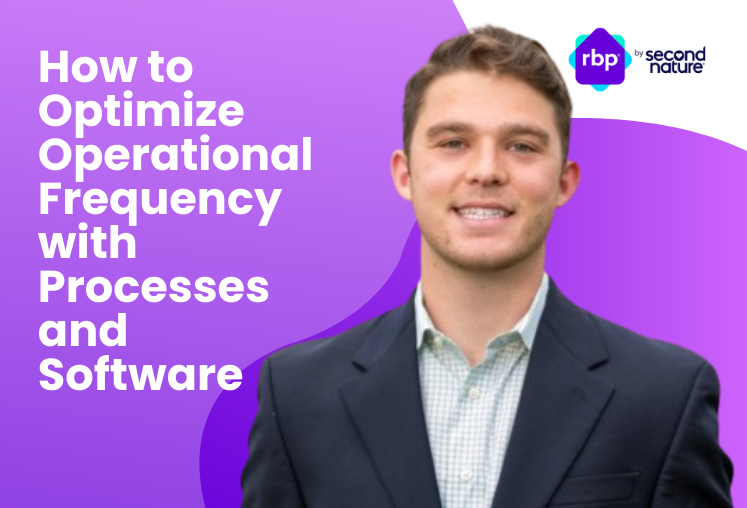Resident experience management is improving every resident touchpoint – from application to move-out – to drive an experience so good your residents never want to leave.
Today, the role of the property manager is to proactively identify and meet residents’ needs, often before the resident knows they need it. It’s a new world, but it’s exciting, allowing enterprising PMs to stand out in a crowded industry. Solutions that drive value, like a resident benefits package or an investor benefits package, are taking a lead.
At Second Nature, we build tools with those enterprising property managers leading the way, and we’ve put together a report on the latest trends and innovations in the space.
In this article, we’re diving deep into how to improve the resident experience, why it matters, and the best practices in resident experience right now. For more details and insights from leading PMs, check out the 2023 State of Resident Experience Report.

Why is Resident Experience Important?
Related: State of Resident Experience Study
The “experience economy” has changed both customer and resident expectations. Particularly after the pandemic, the modern consumer is accustomed to the ease of apps like Uber, Airbnb, and Amazon, and they respond to ease and convenience.
The question that single-family and multifamily PMCs are asking now isn’t “What’s the most I can get out of residents for the least I can do?” Rather it's: “How do I create an experience so good that residents never want to leave?”
Property management companies are redefining resident experiences to improve occupancy rates and help residents, investors, and their companies get a win. Investing in resident experience management strategies is one of the most direct ways to yield positive ROI and reduce turnover costs.
According to DD Lee, owner of Skyline Properties Group in Atlanta:
“The number one thing (our residents) look for is ease and convenience. They don't want complicated instructions. They just want simple; they want right now. They want contact-free; they don't want to talk to people. So everything we do from showings to moving in to the experience after they move in is all revolved around design for that expectation.”
How to Improve Resident Experience
Resident experience management is about identifying every unique touchpoint along the resident’s journey – from application to move-out. Property managers are now expected to make each touchpoint painless and convenient.
Our 2023 State of Resident Experience Report discusses changing consumer expectations and the key steps to resident satisfaction. Here, let’s expand on each key resident touchpoint where PMs can focus on improvement.
Move-In
Move-in is the perfect opportunity to design experiences that make new residents say, “Wow” – to make them feel delighted, welcome, and truly at home.
Our guide explores some of the best innovations for cultivating a unique move-in experience. One of the best is to offer a Resident Benefits Package (RBP) that folds in services like a move-in concierge, insurance, incentives, and more.
Rent Payments
Second Nature’s RBP has a credit-building service that reports on-time payments to every credit bureau, giving value to residents and helping them become more financially stable. Another service is the resident rewards program, which incentivizes on-time payments and supports great residents.
Maintenance Requests
Using an online resident portal for real-time maintenance requests has become a baseline expectation. PMs are going beyond that to ensure they use preventative maintenance and deploying strategies to improve functionality.
One such resident experience strategy is an air filter delivery service. Changing filters on time can reduce HVAC requests by 38%, saving the property manager and investor hundreds of dollars a year.
Pet Registration
Property managers can proactively offer pet registrations or guarantees and even use that as a form of ancillary income. You get the extra pet fees to drive income, the investor gets an assurance that they won’t suffer because of pet damage, and the resident gets to keep their pet!
Resident Concierge Services
Concierge services are a top way to provide a VIP experience. Second Nature’s RBP includes a move-in concierge who can confidently guide multiple people daily to set up their utilities properly. Residents don’t have to deal with the headache of setting up new utilities – instead, in one phone call, they find out their best options and can even get help simplifying setup.
Renewal Process
PMs can proactively set up the renewal process, so it’s as easy for the resident as a click of a button. Assuming each touchpoint along the way has anticipated and delivered on residents’ needs – and surpassed their expectations – lease renewal should be straightforward and quick.
Resident Communication
Property managers aiming to improve the resident experience have found creative ways to improve and streamline resident communication. Great communication is necessary, whether through digital apps and automation, social media, on-site messaging, proactive team members, etc.
Move Out
When a resident is moving out – whether they chose to move or are delinquent – property managers can help make the process as smooth as possible. Anticipating the resident’s needs, keeping communication open, and deploying motivated team members all help deliver the final touch for residents. The move-out experience is their last impression and can impact your referrals, reputation, etc.

Resident Experience Ideas and Examples
Resident retention is a key success metric in the current economic climate. Keeping residents engaged and happy can go a long way to delivering a triple win: hitting your goals, their goals, and your investor’s goals.
Our State of Resident Experience Report explores how resident experience management can deliver ROI, company growth, and happier investors. We also talk to several experts in the property management field to hear their best and most successful ideas.
Here are a few key resident experience ideas that residents will pay for and stay for.
- Post-maintenance surveys and follow-ups
- Quick complaint responses and preventive maintenance
- Pet-friendly property management and insurance
- Resident engagement programs like a recycling drive, helping minimize waste productions, sourcing local, etc.
- Prioritizing safety and security and engaging residents in a proactive way to achieve that
Each of these strategies helps deliver what “totally taken care of” feels like. Which is exactly what residents are looking for.
How to Handle Difficult Residents
Every property manager we’ve talked to has dealt with difficult residents at some point in their career. The best property management strategies prevent many of these issues through better resident experiences. The right strategy can help incentivize residents to cooperate, keep a property well-maintained, and make on-time payments.
When you are facing a difficult resident situation, here’s how leading property managers advise proceeding.
Make sure service promises are fulfilled
One of the most important things that sets professional PMs apart from hobbyists or amateur landlords is the delivery of promises. Because you have a team and a plan, you can ensure that what you promise is what residents get.
Being courteous, kind, and professional
A lot of this is about hiring the right people. Get your core values in place and ensure that anyone you hire is bought in on those values. Finding people that the rest of your team enjoys working with is also important. Cultivating an environment of courtesy and respect goes a long way to ensuring residents are treated fairly.
By not taking it personally
Improving the resident living experience is all about seeing the human at the other end. When unhappy or troublesome residents aren’t taken personally, it puts us in a better position to take reasonable, effective steps to deal with them. Professional PMs can approach challenging situations without judgment but with clear boundaries and proactive solutions.
Delegating
This comes back to having the right team in place. If you trust your team, you can delegate specific complex tasks to them without spending all your time on every issue.
Peter Lohmann, CEO of RL Property Management, shared that he keeps a delegation cheat sheet printed out at his desk. The steps to successfully delegating are:
- Outline the vision - “Comannder’s Intent.”
- Share resources.
- Describe your definition of done.
- Give a deadline or interval.
- Explain how and when they should keep you updated.
Having paperwork to back your arguments
Ensuring you have documentation of each issue with the resident is critical. Documenting interactions along the way helps protect you and your team.
Setting and maintaining expectations
Again, professional PMs know that setting and maintaining expectations is one of the top priorities for a happy and successful resident relationship. Knowing that today’s residents expect a certain level of convenience can put professional PMs ahead of the game.
Building a Resident Experience Strategy with Second Nature
We’ve only scratched the surface of resident experience management and the innovative and exciting ways we’ve seen property managers change the game in that space. The next step might be to explore our Resident Benefits Package and why property managers love it.
Or, if you’d like to learn more about property management trends for 2023 – and the changing state of resident experience – you can download our free State of Resident Experience Report. The in-depth report includes advice and insights from some of the most innovative property managers in the biz, data on resident expectations, and key trends for 2023.
Topics:



